

Bestselling novelist Lisa See’s Los Angeles roots go back five generations – the Chinese branch of her biracial family has been involved in 100 years of Chinatown’s history. See, the author of Dreams of Joy and Shanghai Girls, will be the keynote speaker at the Los Angeles Alliance for a New Economy’s annual Women for a New Los Angeles Luncheon on May 10. She spoke to Frying Pan News about women writers, Walmart and changes in L.A.
Frying Pan News: Your family’s been here longer than most.
Lisa See: We are part of a continuum of women and men who came here and continue to come here. And it’s not only men who come to a place, as pioneers or for a new job. A great-great aunt came here in 1915 from Colorado, opened a millinery shop and caught TB. My great-great grandmother and her husband came West to Waterville,


Pete Seeger, arguably the person most responsible for the revival and popularity of folk music in the United States, turns 94 on May 3. Seeger’s unparalleled life led him to engage in nearly all of the leading social movements of the 20th century, including the labor sit-ins in the 1930s, the economic justice campaigns of the 1940s, fighting the blacklist and promoting peace in the 1950s, the civil rights movement of the 1950s and 1960s and the environmental movement that began in the 1970s. Fortunately, Seeger’s extensive writings are now available in a new book, Pete Seeger: In His Own Words, selected and edited by Rob Rosenthal and Sam Rosenthal. The book offers unusual insight into Seeger’s motivations, and for his relentless optimism in the face of adversity. Seeger has spoken the truth for nearly 100 years, and his writings offer inspiration to all those working for peace, justice and for a better world.

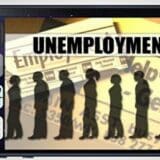
The economy is personal. It colors our decisions about everything: when to have kids, what city to move to, who to vote for, who to sleep with. And nobody knows this better than the biggest generation in history: the Millennials. These 80 million Americans have come of age during the worst economic recession since the Depression, an experience that will have profound repercussions on our lives—and our political consciousness.
I call us the Crash Generation. For many of us in our twenties, 2008 was a period awash in exhilarating highs and terrifying lows. The words “depression,” “economic crisis,” “mass layoffs” and “foreclosures,” along with “hope,” “change” and “Obama,” all clogged the headlines and made their way into whiskey-fueled party conversations. Washington and the media had never been so frank about the cataclysmic proportions of a financial crash. And a candidate had never kicked young voters into such high gear like Barack Obama,
» Read more about: Generation Crash: Millennials to the Rescue »
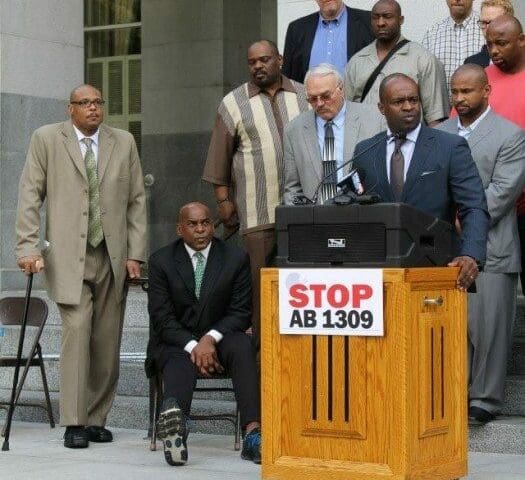
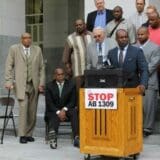
There is no question that the game of football is dangerous. National Football League players get injured on the job – so many that an “injury report” section is ubiquitous in our sports pages. In fact, a study run by the National Institute for Occupational Safety and Health (NIOSH) found that the risk of death associated with neurodegenerative disorders is about three times higher among NFL players than the rest of the population.
NFL athletes are not merely players, they are also employees.
Their employers are now trying to take away their collectively bargained right to workers’ compensation benefits in California. It is not right, and it sets a dangerous precedent.
Assembly Bill 1309 singles out one group of workers, professional athletes, and treats them differently than other employees by denying them the right to file for California Workers’ Compensation benefits.
AB 1309 is an attempt by the insurance companies and professional teams to shift the cost of care for injured players from the companies to state agencies like Medi-Cal and federal agencies like Medicare.
» Read more about: Assembly Bill to Kill Athletes’ Workers’ Comp Claims »


Cherri Senders wasn’t always looking for the union label. Back in the late 1980s the Washington, D.C. native was writing for the L.A. Weekly, an alternative newspaper that was generous with editorial pleas for social justice but miserly when paying its own workers.
“I saw how exploited writers were,” Senders tells Frying Pan News. “We joined the National Writers Union and were able to go from five cents a word to seven. That’s how I found out about the labor movement.”
About 15 years later a friend of Senders, who by then had started her own communications company, wanted to learn how to purchase union-made baby products, but couldn’t find a way to track down which ones bore a union label.
There had always been Buy Union lists – often out of date and pinned to the bulletin boards of union halls or, more recently,
» Read more about: Looking for the Union Label in All the Right Places »


Guilt — in the psychoanalytic tradition — is both a form of self-punishment and a key obstacle to therapeutic improvement. In The Ego and the Id, Freud wrote that the patient finds “satisfaction in the illness and refuses to give up the punishment of suffering.” In a paradoxical way, obsessive guilt becomes a masochistic attempt at an unreliable cure.
The Company You Keep, starring and directed by Robert Redford, is a film awash in guilt. Redford’s character, Jim Grant, an ex-radical still “hiding” in plain sight, feels guilt about his past and about the secrets he has to withhold from his daughter. A reporter, played by Shia LaBeouf, eventually feels guilty about the impact his bulldog reporting might have on the people he’s writing about. A tenured radical professor feels guilty about not keeping up “the struggle,” unable to inspire his students beyond a round of applause at the end of his stories.
» Read more about: The Sixties: What a Long, Strange Guilt Trip It’s Been »
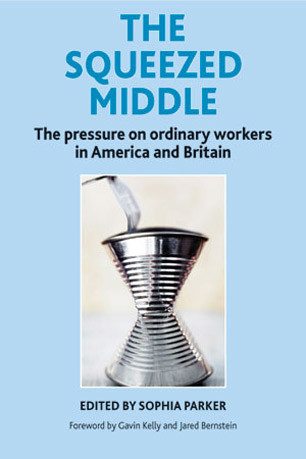
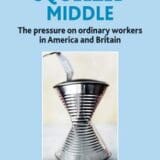
The Squeezed Middle: The Pressure on Ordinary Workers in America and Britain, a short book edited by Sophia Parker, brings together 16 scholars and activists to diagnose America’s malaise. (Policy Press, 2013.)
You probably don’t need a book to tell you that the United States has fallen into the economic abyss and the United Kingdom is teetering on the edge. Wages have been flat for 40 years; welfare as we knew it is gone and the political system has been corrupted by corporations and greed.
If you’re British, you might think that the United Kingdom isn’t teetering, but has already firmly landed at rock bottom. If that’s what you think, then think again. Things are much more savage on the Tea Party side of the Atlantic Ocean. Mother country, beware.
Inequality has risen dramatically in both the United States and the United Kingdom, but the United Kingdom maintains some vestiges of civilization,
Here’s Public Works‘ singalong video of Irving Berlin’s 1942 song, “I Paid My Taxes Today,” performed by Gene Autry. Lyrics below:
I said to my Uncle Sam
“Old Man Taxes, here I am”
And he was glad to see me.
Mister Small Fry, yes, indeed.
Lower brackets, that’s my speed.
But he was glad to see me.
I paid my income tax today.
I never felt so proud before,
To be right there with the millions more
Who paid their income tax today.
I’m squared up with the USA
See those bombers in the sky,
Rockefeller helped to build ‘em.
So did I.
I PAID MY INCOME TAX TODAY


Was Occupy Wall Street just a dream? The fall of 2011 was one of the most exciting and optimistic times of my life as a progressive. Seeing thousands of young people all over the country flock to their local occupations was truly amazing and historic. I felt that we were in the middle of a cultural awakening and that a huge radical change was just on the brink.
The other weekend I went to New York City to see where it all began up close and in person. I walked to Wall Street to find Zuccotti Park and literally walked right past it. Quite naively I expected a huge space with progressive activists still meeting and planning the revolution, but found no one. In fact, Zuccotti Park is a tiny little plaza where tourists rest after visiting Ground Zero and taking pictures of the Wall Street bull sculpture. On the subway back to my friend’s house,
» Read more about: Zuccotti Park Blues: Occupy Wall Street Reconsidered »


I have been humming one of my favorite Elvis Costello songs from the moment I heard the news of Margaret Thatcher’s death Monday morning. The chorus never fails to move me:
“When they finally put you in the ground,
I’ll stand there laughing, and tramp the dirt down.”
A friend forwarded me some other excellent Thatcher songs, and I spent last night on a truly enjoyable trip down Memory Lane.
The songs and videos gathered include Costello’s, along with Billy Bragg’s, and the Specials’ “Ghost Town” – which was the soundtrack to a summer spent in London when I was 14 — and more hardcore offerings. Perhaps Thatcher’s one positive legacy is the inspiration she provided to punk rock. I remember the kind of ecstatic anger I felt listening to some of those bands – and Thatcher was an excellent focus for that anger.
It’s hard to present the history of a social movement without giving the impression that all the exciting fights have already been won and that taking action now is irrelevant. Sometimes the activists of the past suggest they knew more than they did at the time, and were unique in their ability to organize and take risks. All of this can make for boring documentaries and a pomposity that’s off-putting to anyone born after the action being described.
Somehow Feminist: Stories from Women’s Liberation 1963-1970, a new film by Jennifer Lee, avoids these fatal flaws. By including her own personal awakening to 1960s feminism through the making of the film, Lee opens a window onto a movement that feels almost as new and exuberant as that early movement did.
Conditions for women in 1963 were unimaginably strict and confining (Lee refers to sex-segregated want ads as emblematic of the period),
» Read more about: Film Review: “Feminist: Stories from Women’s Liberation” »
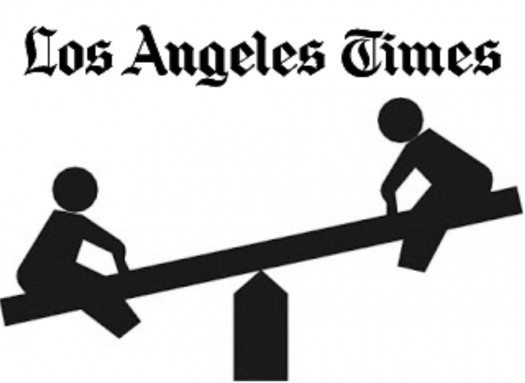
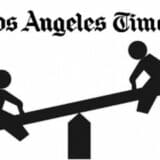
James Rainey’s L.A. Times story, “Garcetti, Greuel Step Gingerly Around City Labor Issues,” shows the problem with the press’ approach to writing so-called “balanced” stories.
Rainey’s story is generally a good one, filled with facts and figures. He’s even careful to use his data to set the record straight when it contradicts what one of his interviewees says. For example, after the County Federation of Labor’s Maria Elena Durazo says “that the average city worker receives $32,000 in retirement,” Rainey writes, “The website for the city’s civilian retirement system puts the average pension benefit for 12,000 current retirees about 40 percent higher than Durazo’s figure.”
Okay, so he checks Durazo’s stats and she appears to be mistaken.
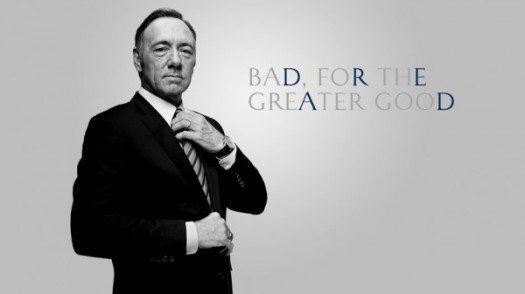
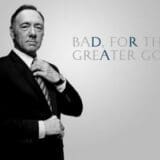
Netflix’s new House of Cards series offers an inside look at Beltway power games and is far better than most of this genre—which is why its retrograde and even racist union-bashing is so unfortunate. For example, Episode Five sympathetically portrays politicians who lie to unions, and claims eliminating federal funding for school districts engaged in collective bargaining is necessary for education reform.
Teachers’ unions are shown as completely out of touch with members, and run not by their female and African-American elected political leadership but rather by white male political consultants. And in an episode that could have been produced by either Michelle Rhee or the National Right to Work Committee, House of Cards depicts elite interests as knowing better what workers want than their own unions. Beneath its plot turns and star power, the series — whose theme is “Bad,
» Read more about: “House of Cards” No Friend to the House of Labor »


Spring equinox always arrives in what feels like the middle of winter. Snow falls in the Northwest while the Northeast tries to dig out from under the most recent storm and ice still covers Midwestern roads. Even in Los Angeles, spring does not really feel like, well, spring until sometime in late April or early May. The foundational spring stories of the Northern Hemisphere also have that hidden element.
Passover in the Jewish tradition tells the story of a people oppressed by enslavement in Egypt, the dominant empire of its time. Over and over again terrible experiences overtake the land, but the slave masters refuse to let go. A plague of frogs is not enough. Nor locusts. Nor dying animals. Nine times the plagues come and the masters will not relent. Then, suddenly, with number ten, the slaves are released, or actually, told to leave. It could have happened after the first disaster.
» Read more about: Spring’s Awakening and the Dawn of Change »


If you’re like me, right now you may be scrambling to stock up on all of your Passover essentials. So what if I told you that you could get 12 boxes of matzah – more than enough to cover the eight days and nights of breadless revelry – for just over $40 bucks?
Ah, but there’s a catch: You’ll have to buy this miracle matzah pak at Walmart. Moral dilemma? You bet.
Last year we provided a short list of reasons you might want to think twice about a Walmart matzah binge. We wish we could report that Walmart had cleaned up its act since then, but alas, the world’s largest retailer has racked up a series of alleged corporate crimes and indiscretions that would make a pharaoh blush.
So before you succumb to those everyday low prices, here are five more reasons not to buy matzah at Walmart:
1) Hunger Strike: Remember those passages in the haggadah about the bread of affliction?
» Read more about: Five New Reasons Not to Buy Matzah at Walmart »
In the previous week we reposted this fact-packed, viral video (more than four million views at last count) about economic inequality in America. Its deft use of graphics makes this a handy resource — and worth a second look.

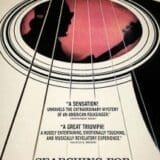
Searching for Sugar Man, the Oscar-winning documentary film by Swedish director Malik Bendjelloul, hits you in the heart. You walk out of the theater feeling the world can be redeemed — and that it is possible for a person to be recognized for their talents and contributions even after years of obscurity and seeming inconsequence. If it could happen to a musician called Rodriguez then, perhaps, it could happen to the hundreds of other equally talented and modest people in this world.
Sixto Rodriguez, so named because he was the sixth child born to his mother, was a handsome, lithe, enigmatic singer/songwriter in 1970s Detroit who released two albums of haunting, alienated songs and then seemingly sank into oblivion. Except one of his albums made it to Cape Town, South Africa and got passed hand to hand where its songs were picked up by the anti-apartheid music scene as anthems of a sort for a generation.
» Read more about: Films in Review: “Searching for Sugar Man” »


Don’t miss this inspiring theatrical adaptation of The Grapes of Wrath, the rabble-rousing, pro-union Depression-era classic that, alas, remains as timely now as the day John Steinbeck wrote it in 1939. With imaginative mise-en-scene, sets, props and an integrated use of live music, A Noise Within’s production brings the Homeric, heroic odyssey of the Joad family from Oklahoma to California vividly, memorably alive.
Forced off of what had been the family farm for generations by a calamity worse than the Dustbowl — greedy bankers — the displaced Joads join the “Okie” trek to California in their decrepit truck (which is assembled onstage like a jalopy jigsaw puzzle that even assembly line maestro Henry Ford would marvel at). The company creatively expresses the Joads’ long march as they go westward ho! on the thrust stage of A Noise Within’s beautiful new space. But once they reach California’s land of milk and honey,
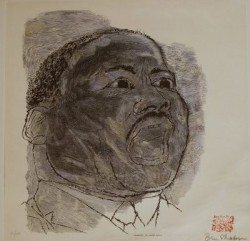
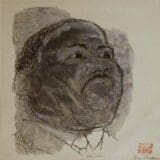
As we settle further into Black History Month, it’s the perfect time to reflect on Martin Luther King Jr. and his often under-acknowledged passion for economic justice. King stands as a pillar of civil rights leadership and the movement for equal rights. His legacy is special to the black community, and as a symbol, he has become an extraordinary role model to all people. However, to see King’s legacy only through this lens would miss much of his work. King was also a union ally and champion of economic justice.
King understood clearly that the battle for racial equality would be empty without a parallel fight for economic equality. “[What] will [the Negro] gain by being permitted to move an integrated neighborhood if he cannot afford to do so because he is unemployed or has a low-paying job with no future?”[i] Having equal rights without the means to exercise those rights becomes an empty promise,
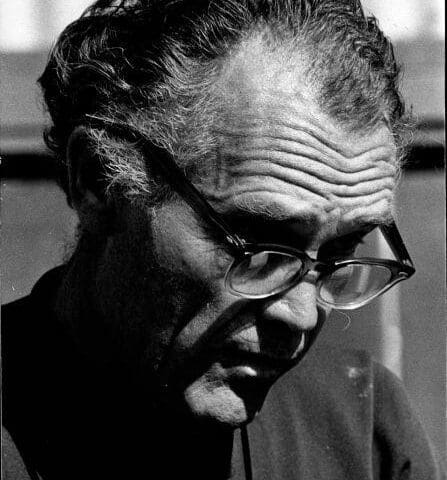
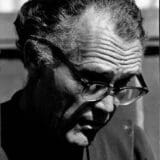
Activists, organizers and elected officials across the United States have come together to urge President Barack Obama to award posthumously the Presidential Medal of Freedom to the legendary organizer, Fred Ross Sr. The first to organize people through house meetings, a mentor to both Cesar Chavez and Dolores Huerta, and a pioneer in Latino voter outreach since 1949 when he helped elect Ed Roybal as Los Angeles’s first Latino council member, Ross’ influence on social change movements remains strong two decades after his death in 1992. If there were a Mount Rushmore for community organizers, Ross’s angular face would be on it. Here is a brief summary of Ross’s remarkable legacy, along with instructions on how to get your message of support to President Obama in time for the February 28 deadline.
Like all activists familiar with his work, I had a reverence for Fred Ross, Sr. before I knew the full record of his accomplishments.